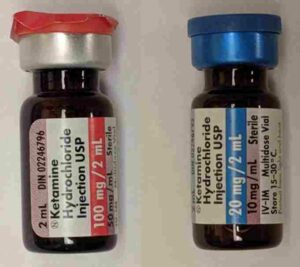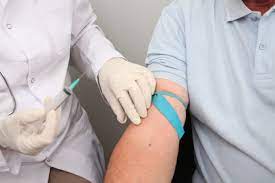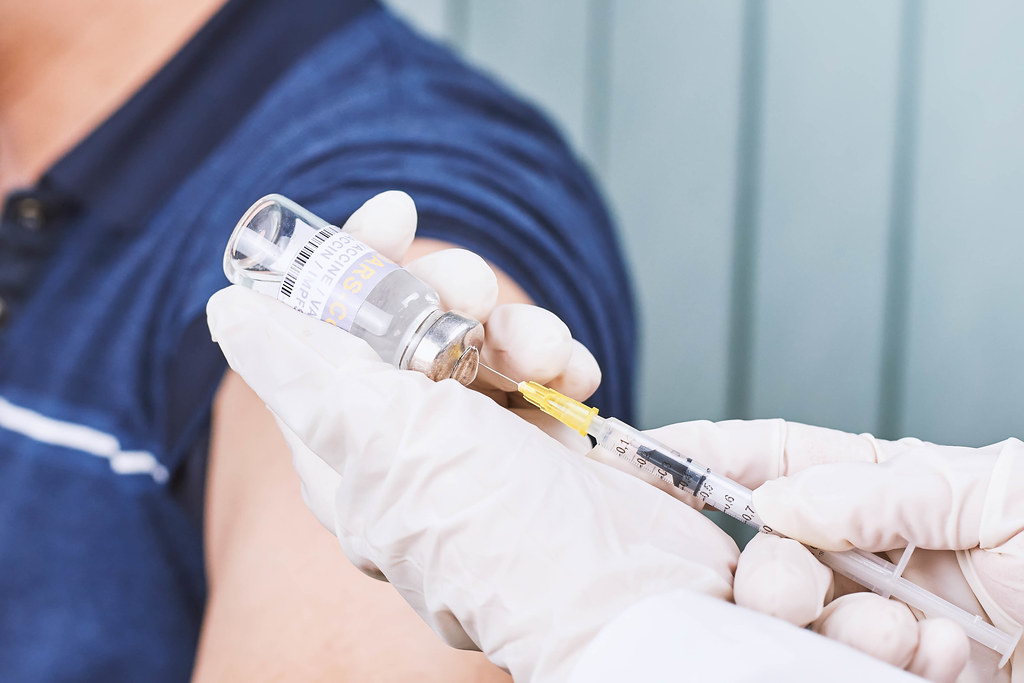Depression is a common mental health condition that affects millions of people worldwide. While there are several treatments available for depression, such as antidepressant medications and psychotherapy, these treatments may not work for everyone. Ketamine, a drug traditionally used as an anesthetic, has gained attention as a potential treatment for depression. In this blog, we will explore the use of ketamine for depression, its benefits, and alternative treatments for depression. We will also discuss some potential risks associated with ketamine treatment.
Contents
What Is Ketamine?

Ketamine is a medication that can be used to treat pain and as an anesthetic for medical procedures. It is a type of drug called a dissociative anesthetic. This means that it can cause a feeling of detachment from one’s surroundings and one’s own body. Ketamine has also gained popularity as a recreational drug, but it can be dangerous when used improperly. Recently, ketamine for depression has shown promise as a treatment, particularly for patients who have not responded to other forms of treatment.
How Does Ketamine Work For Depression?
Ketamine is believed to work by increasing the availability of the neurotransmitter glutamate in the brain. Glutamate is involved in the regulation of mood, cognition, and perception. Ketamine also stimulates the production of brain-derived neurotrophic factor (BDNF), a protein that is essential for the growth and survival of neurons in the brain. BDNF levels are often reduced in people with depression, and increasing BDNF levels have been shown to have antidepressant effects.
Ketamine’s effects on glutamate and BDNF may help to restore neural connections that are disrupted in depression. Ketamine has also been found to activate other neurotransmitter systems in the brain, such as dopamine and serotonin, which are involved in mood regulation.
How Is Ketamine Administered?
Ketamine can be administered through various routes, depending on the purpose of the treatment. Here are some common methods of ketamine administration:
Intravenous (IV) infusion
This is the most common method of ketamine administration for depression treatment. During an IV infusion, ketamine is delivered directly into the patient’s bloodstream through a catheter in the arm. This allows for precise control over the dose and rapid onset of action, with effects typically felt within minutes. Patients typically receive a series of infusions over several weeks, with the frequency and duration of treatment depending on the individual patient’s response.
Intramuscular (IM) injection

Ketamine can also be administered through an IM injection, although this method is less common than an IV infusion. IM injection may be used in emergencies, such as when a patient is experiencing severe depression or suicidal ideation. IM injection has a more rapid onset of action than oral administration, but the effects are not as immediate as IV infusion.
Nasal spray
Ketamine is also available as a nasal spray, which allows for more convenient and less invasive administration. The nasal spray is typically self-administered by the patient at home, with dosing instructions provided by the healthcare provider. Nasal spray may be used for maintenance treatment following an initial series of IV infusions. The onset of action is slower than with IV infusions but faster than with oral administration.
Sublingual tablets or lozenges
Ketamine can also be administered in the form of sublingual tablets or lozenges, which are placed under the tongue or on the cheek. This method allows for slower absorption and more prolonged effects than IV infusions. Sublingual administration may be preferred for patients who have difficulty tolerating IV infusions or who require longer-term maintenance treatment.
Benefits Of Ketamine For Depression
Given below are some potential benefits of Ketamine as a treatment for depression:
- Rapid onset of action: Ketamine has been shown to produce significant improvement in depressive symptoms within hours of administration, which is much faster than traditional antidepressant medications.
- High response rate: Ketamine has been shown to produce significant improvement in depressive symptoms in up to 70% of patients with treatment-resistant depression.
- Long-lasting effects: The effects of a single ketamine infusion can last for up to two weeks in some patients, which is longer than the effects of traditional antidepressant medications.
- Low risk of addiction: Unlike traditional antidepressant medications, ketamine has a low risk of addiction and dependence.
- Alternative treatment option: Ketamine can be a useful treatment option for patients who have not responded to other forms of treatment for depression, such as traditional antidepressant medications or therapy.
- Improvement in suicidal ideation: Studies have shown that ketamine can rapidly reduce suicidal thoughts and ideation. This is particularly important for patients at high risk of suicide.
Potential Risks Of Ketamine Treatment
Here are some potential side effects of ketamine treatment:
- Dissociative symptoms: Ketamine can cause dissociative symptoms, such as feeling disconnected from one’s surroundings, visual distortions, and feelings of detachment from one’s own body.
- Nausea and vomiting: It can cause nausea and vomiting, particularly during the infusion.
- Changes in blood pressure and heart rate: Ketamine can cause changes in blood pressure and heart rate, which can be of particular concern for patients with cardiovascular conditions.
- Blurred vision: Ketamine treatment can cause blurred vision. This can be a safety concern, particularly when driving or operating heavy machinery.
- Cognitive impairment: It can cause temporary cognitive impairment. This might include confusion, memory loss, and difficulty with attention and concentration.
- Dependence and abuse: Although the risk of dependence and abuse is low when ketamine is used therapeutically. It can still occur when the drug is used recreationally.
- Psychotic symptoms: In rare cases, ketamine treatment can cause psychotic symptoms, such as delusions and hallucinations.
Alternative Drugs For Depression
 There are several alternative drugs for depression other than ketamine. Here are a few examples:
There are several alternative drugs for depression other than ketamine. Here are a few examples:
- Selective serotonin reuptake inhibitors (SSRIs): SSRIs are a class of antidepressant medications that work by increasing the levels of serotonin in the brain. Examples of SSRIs include fluoxetine (Prozac), sertraline (Zoloft), and escitalopram (Lexapro).
- Serotonin and norepinephrine reuptake inhibitors (SNRIs): These are antidepressant medications that work by increasing the levels of both serotonin and norepinephrine in the brain. Examples of SNRIs include duloxetine (Cymbalta) and venlafaxine (Effexor).
- Tricyclic antidepressants (TCAs): TCAs are an older class of antidepressant medications that are sometimes used when other treatments have not been effective. Examples of TCAs include amitriptyline (Elavil) and nortriptyline (Pamelor).
- Atypical antidepressants: Atypical antidepressants are a diverse group of medications that work in different ways to treat depression. Examples of atypical antidepressants include bupropion (Wellbutrin), mirtazapine (Remeron), and vortioxetine (Trintellix).
- Monoamine oxidase inhibitors (MAOIs): MAOIs are an older class of antidepressant medications that are sometimes used when other treatments have not been effective. However, MAOIs can have serious side effects and interactions with other medications and foods, so they are usually only prescribed by a specialist.
Conclusion
In conclusion, ketamine may be a promising treatment option for depression, particularly for those with treatment-resistant depression. While it can have significant benefits, it is important to consider the potential risks and side effects before pursuing ketamine treatment. It is also important to seek help from a qualified healthcare provider and explore other treatment options as well. Depression is a treatable illness, and seeking help is the first step toward recovery.
For more information, please contact MantraCare. Depression is a mental illness characterized by persistent feelings of sadness, hopelessness, and loss of interest in daily activities. If you have any queries regarding Online Depression Counseling experienced therapists at MantraCare can help: Book a trial Depression Therapy session


